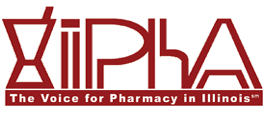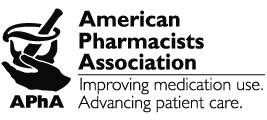Recent Blog Posts
Will My Real Estate License Be Revoked for a Criminal Conviction?
 Getting a real estate license in Illinois is no easy feat. In addition to licensing courses, exams, and completing training with a sponsoring broker, there is endless ongoing research into market trends, local housing prices, and government regulations. The threat of losing one’s real estate license because of a criminal conviction or for any other reason could mean years of hard work and personal investment gone to waste. If you are facing sanctions to your professional real estate license, make sure you speak with an Illinois professional license defense attorney right away.
Getting a real estate license in Illinois is no easy feat. In addition to licensing courses, exams, and completing training with a sponsoring broker, there is endless ongoing research into market trends, local housing prices, and government regulations. The threat of losing one’s real estate license because of a criminal conviction or for any other reason could mean years of hard work and personal investment gone to waste. If you are facing sanctions to your professional real estate license, make sure you speak with an Illinois professional license defense attorney right away.
Crimes That Can Trigger Real Estate License Sanctions
Many crimes are serious enough to allow sanctions against a real estate license, and some may even prevent someone from getting their license in the first place. Although the crimes are not limited to those related to real estate, crimes that are connected to real estate in any way are top of the list. These include, but are not limited to:
How Can Healthcare Professionals Use Social Media Safely?
 Several American nurses lost their jobs recently after they posted a video on social media describing the things they dislike about their jobs in labor and delivery. Even after the original posting was deleted, the video continued to make its way around the internet, leaving the nurses who originally posted it with no way to take it back or to get their faces out of the news.
Several American nurses lost their jobs recently after they posted a video on social media describing the things they dislike about their jobs in labor and delivery. Even after the original posting was deleted, the video continued to make its way around the internet, leaving the nurses who originally posted it with no way to take it back or to get their faces out of the news.
This incident highlights the pitfalls of social media use for healthcare professionals, who, while certainly being entitled to their opinions about their job and patients, are at a heightened risk of professional sanctions for sharing those opinions publicly. Experts who advise healthcare professionals on how to use social media wisely have several tips for avoiding behaviors that could potentially open one up to criticism and even professional disciplinary measures.
How Can Illinois Dentists Lose Their Professional Licenses?
 Dentists spend many years and hundreds of thousands of dollars to learn the skill of dentistry. When taking into account the bureaucratic labor and fees, office and equipment financing, and staffing costs associated with setting up a practice, dental professionals have often invested enormous amounts of time and money by the time they are actually practicing on patients.
Dentists spend many years and hundreds of thousands of dollars to learn the skill of dentistry. When taking into account the bureaucratic labor and fees, office and equipment financing, and staffing costs associated with setting up a practice, dental professionals have often invested enormous amounts of time and money by the time they are actually practicing on patients.
Unfortunately, this investment does not protect dentists from accusations of misconduct. Even when such accusations are entirely unfounded, dentists may face an uphill battle defending themselves from allegations of fraud, abuse, or other inappropriate behaviors. If you know or are worried that you may be facing an investigation for allegations against you, your hard work deserves to be protected by an excellent professional license defense attorney.
What Kind of Behaviors Can Cause a Dentist to be Investigated?
How Can A Professional Practitioner Defend Against False Allegations?
 Studies estimate that more than 40 percent of doctors will be sued during their careers. As America becomes increasingly litigious, doctors can expect that rate to go up - and so can other healthcare professionals. Nurses, dentists, psychologists, social workers, and any other healthcare worker is at risk of any number of accusations - many of which may be partly false, unfounded, or stem from the accuser’s own mental unwellness.
Studies estimate that more than 40 percent of doctors will be sued during their careers. As America becomes increasingly litigious, doctors can expect that rate to go up - and so can other healthcare professionals. Nurses, dentists, psychologists, social workers, and any other healthcare worker is at risk of any number of accusations - many of which may be partly false, unfounded, or stem from the accuser’s own mental unwellness.
Even in cases involving obviously false allegations, healthcare practitioners can find themselves defending their cause in front of their regulating board, to say nothing of the impact such allegations can have on the professional’s standing in their family and community. If you have been accused of any wrongdoing, it is crucial to retain experienced legal representation right away.
What Kind of False Accusations Can Healthcare Workers Face?
Unethical Behaviors Can Lead to License Suspension for Social Workers
 Social workers play a crucial role in helping people work through their problems and become effective, well-adjusted members of society. Whether social workers practice in child welfare agencies, addiction services, schools, or private practices, they help vulnerable people and communities deal with real-world problems.
Social workers play a crucial role in helping people work through their problems and become effective, well-adjusted members of society. Whether social workers practice in child welfare agencies, addiction services, schools, or private practices, they help vulnerable people and communities deal with real-world problems.
Unfortunately, because of the often public-facing nature of their job, social workers often find themselves targeted by dissatisfied clients, parents, or coworkers. Social workers also carry the burden of performing professionally at a very high standard, protecting vulnerable people even at the expense of their own needs or desires. Sometimes, social workers make mistakes that jeopardize their ability to practice their profession; other times, they are unfairly singled out for retaliation. Whatever the allegations against you, if you are a social worker facing accusations of ethical misconduct, negligence, or other misbehavior, you need the help of an Illinois professional license defense attorney.
What Should I Do if I Have Been Excluded as a Medicare Provider?
 Accusations of Medicare fraud or abuse can have a significant impact on a healthcare provider’s ability to practice his or her profession. In addition to limiting the kinds of patients a provider can serve, Medicare provider revocation can be involved without other sanctions that may prevent a doctor from practicing altogether and may involve hefty fines. In one recent example, a Kentucky doctor was fined $720,000 and suspended from federal healthcare programs for fifteen years for submitting false claims to Medicare and Violating the False Claims Act.
Accusations of Medicare fraud or abuse can have a significant impact on a healthcare provider’s ability to practice his or her profession. In addition to limiting the kinds of patients a provider can serve, Medicare provider revocation can be involved without other sanctions that may prevent a doctor from practicing altogether and may involve hefty fines. In one recent example, a Kentucky doctor was fined $720,000 and suspended from federal healthcare programs for fifteen years for submitting false claims to Medicare and Violating the False Claims Act.
If you are facing accusations of Medicare fraud, you need experienced, aggressive legal counsel to help you manage the investigation in your favor. If you have already had your Medicare provider status revoked or suspended, a professional license defense attorney may be able to help you get your privileges back.
Can a Psychologist’s License Be Suspended if a Patient Commits Suicide?
 Psychologists face a tremendous amount of responsibility as they attempt to treat patients for some of the most complex, difficult-to-understand mental illnesses imaginable. Although many psychologists help patients overcome difficulties and learn to manage mental illness in a safe, productive way, other times a psychologist’s professional practice may lead patients to further harm. In the most extreme cases, patients may take their own lives, potentially exposing the psychologist to professional discipline for their treatment methods.
Psychologists face a tremendous amount of responsibility as they attempt to treat patients for some of the most complex, difficult-to-understand mental illnesses imaginable. Although many psychologists help patients overcome difficulties and learn to manage mental illness in a safe, productive way, other times a psychologist’s professional practice may lead patients to further harm. In the most extreme cases, patients may take their own lives, potentially exposing the psychologist to professional discipline for their treatment methods.
If you are being accused of contributing to a patient’s suicide, it is essential to take these accusations seriously and to enlist help in defending your professional license. Even if you are convinced you did nothing wrong, you may be subjected to an investigation that could threaten your ability to practice.
Can a Psychologist Be Penalized For Certain Kinds of Practices?
Can a Healthcare Professional Get Hospital Admitting Privileges Back?
 Many different healthcare professionals need hospital admitting privileges. While doctors are perhaps most commonly thought of as using hospitals to practice medicine, other professionals, such as nurses who work in birthing centers next to hospitals, need admitting privileges, too. Not being able to admit patients to a hospital could put patients at risk of serious injury or death, and healthcare workers simply may not be able to do their job without hospital admitting privileges. Unfortunately, loss of hospital privileges can happen for a number of reasons. If you are being threatened with loss of admitting privileges or have already lost your admitting privileges, make sure you work closely with an Illinois medical license defense attorney.
Many different healthcare professionals need hospital admitting privileges. While doctors are perhaps most commonly thought of as using hospitals to practice medicine, other professionals, such as nurses who work in birthing centers next to hospitals, need admitting privileges, too. Not being able to admit patients to a hospital could put patients at risk of serious injury or death, and healthcare workers simply may not be able to do their job without hospital admitting privileges. Unfortunately, loss of hospital privileges can happen for a number of reasons. If you are being threatened with loss of admitting privileges or have already lost your admitting privileges, make sure you work closely with an Illinois medical license defense attorney.
Why Do Healthcare Professionals Lose Hospital Admitting Privileges?
People lose hospital admitting privileges for many reasons, although the most common are for issues related to not following hospital protocol and accusations of providing poor patient care. However, other reasons - such as abuse toward colleagues or falling short on an improvement agreement designed to increase the standard of your practice - may trigger the loss of admitting privileges as well.
DEA Investigations Can Mean Trouble for Your Healthcare License
 One of the ways the government is trying to respond to the urgent national opioid epidemic is by sending the Drug Enforcement Agency (DEA) after practitioners suspected of overprescribing opioids to patients. While there are many doctors who have rightfully been investigated and held responsible for overprescribing opioids, others have gotten caught in the cogs of a machine that is desperately trying to prove that it is doing something - whether that something is actually helpful or not.
One of the ways the government is trying to respond to the urgent national opioid epidemic is by sending the Drug Enforcement Agency (DEA) after practitioners suspected of overprescribing opioids to patients. While there are many doctors who have rightfully been investigated and held responsible for overprescribing opioids, others have gotten caught in the cogs of a machine that is desperately trying to prove that it is doing something - whether that something is actually helpful or not.
Even if you are certain you are not guilty of overprescribing opioids to your patients, it is essential to take an investigation by the DEA seriously. If the Illinois medical board is concurrently conducting a separate investigation, the DEA’s findings may influence that investigation. While you may not have violated any laws regarding opioid prescriptions, the board may be interested in other potential violations, in distancing itself from you for other reasons, or in responding to a complaint that is a result of a personal vendetta. No matter the reason, you need to take an investigation seriously and have a professional license defense attorney’s help.
Inappropriate Doctor-Patient Relationships Can Trigger Medical License Revocation
 Standards for doctor-patient relationships are understandably high. Doctors and other healthcare workers are in a position of authority over their patients, and a doctor who is found to have engaged in an inappropriate doctor-patient relationship may be at risk of losing his license. In addition to putting themselves at risk of accusations of medical malpractice, deviating from the standard of care by having even a voluntary relationship with a patient can be an act of negligence by medical professionals. Of course, acts of sexual assault or violence against a patient can similarly result in sanctions against licensure, as well as criminal investigations and punishments.
Standards for doctor-patient relationships are understandably high. Doctors and other healthcare workers are in a position of authority over their patients, and a doctor who is found to have engaged in an inappropriate doctor-patient relationship may be at risk of losing his license. In addition to putting themselves at risk of accusations of medical malpractice, deviating from the standard of care by having even a voluntary relationship with a patient can be an act of negligence by medical professionals. Of course, acts of sexual assault or violence against a patient can similarly result in sanctions against licensure, as well as criminal investigations and punishments.
However, medical practitioners are people and people make mistakes. Furthermore, while practitioners are generally permitted to have consensual relationships with former patients, there may be a question as to whether the professional relationship was legitimately terminated prior to the relationship taking place. If you are a medical professional facing sanctions for allegedly engaging in inappropriate relationships with your patients, contact an Illinois medical license defense attorney for help.














